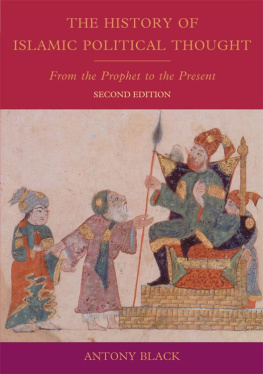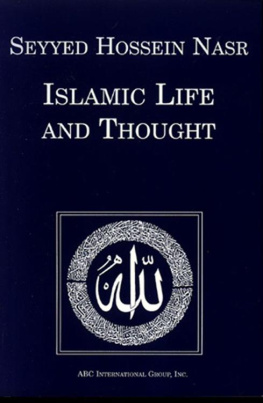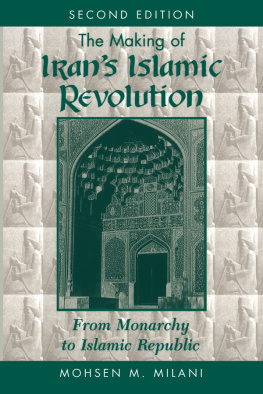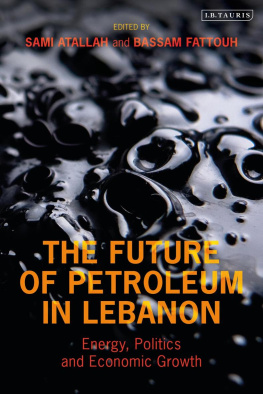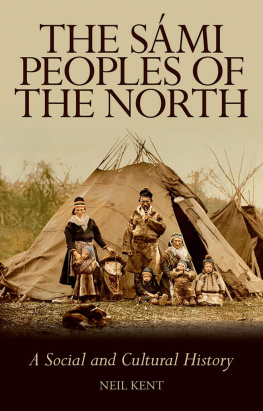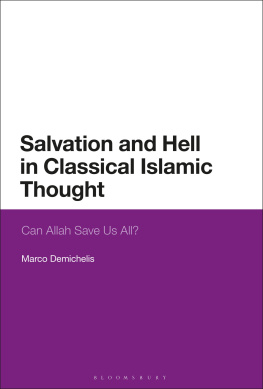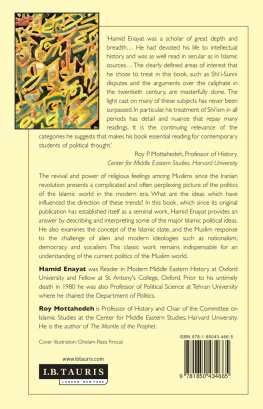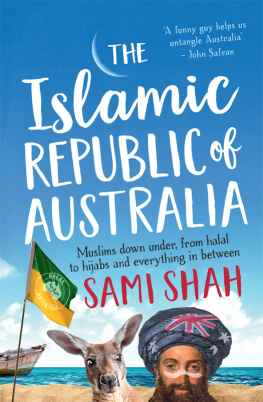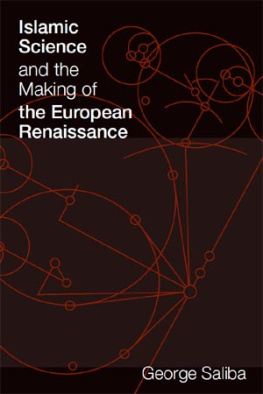Sami Al-Daghistani - The Making of Islamic Economic Thought
Here you can read online Sami Al-Daghistani - The Making of Islamic Economic Thought full text of the book (entire story) in english for free. Download pdf and epub, get meaning, cover and reviews about this ebook. year: 2022, publisher: Cambridge University Press, genre: Politics. Description of the work, (preface) as well as reviews are available. Best literature library LitArk.com created for fans of good reading and offers a wide selection of genres:
Romance novel
Science fiction
Adventure
Detective
Science
History
Home and family
Prose
Art
Politics
Computer
Non-fiction
Religion
Business
Children
Humor
Choose a favorite category and find really read worthwhile books. Enjoy immersion in the world of imagination, feel the emotions of the characters or learn something new for yourself, make an fascinating discovery.
- Book:The Making of Islamic Economic Thought
- Author:
- Publisher:Cambridge University Press
- Genre:
- Year:2022
- Rating:5 / 5
- Favourites:Add to favourites
- Your mark:
- 100
- 1
- 2
- 3
- 4
- 5
The Making of Islamic Economic Thought: summary, description and annotation
We offer to read an annotation, description, summary or preface (depends on what the author of the book "The Making of Islamic Economic Thought" wrote himself). If you haven't found the necessary information about the book — write in the comments, we will try to find it.
The Making of Islamic Economic Thought — read online for free the complete book (whole text) full work
Below is the text of the book, divided by pages. System saving the place of the last page read, allows you to conveniently read the book "The Making of Islamic Economic Thought" online for free, without having to search again every time where you left off. Put a bookmark, and you can go to the page where you finished reading at any time.
Font size:
Interval:
Bookmark:
The Making of Islamic Economic Thought
Interrogating the development and the conceptual framework of economic thought in the Islamic tradition as it pertains to ethical, philosophical, and theological ideas, this book provides a critique of modern Islamic economics as a hybrid economic system. From the outset, Sami Al-Daghistani is concerned with the polyvalent methodology of studying the phenomenon of Islamic economic thought as a human science in that it nurtures a complex plenitude of meanings and interpretations associated with the moral self. Studying legal scholars, theologians, and Sufis in the classical period, Al-Daghistani looks at economic thought in the context of Shara s moral law. Alongside critiquing modern developments of Islamic economics, he puts forward the idea of a plural epistemology of Islams moral economy, which advocates for a multifaceted hermeneutical reading of the subject in light of a moral law, embedded in a particular cosmology of human relationality, metaphysical intelligibility, and economic subjectivity.
Sami Al-Daghistani is a postdoctoral fellow at the MF Norwegian School of Theology, Religion and Society in Oslo, an associate faculty member at the Brooklyn Institute for Social Research in New York, and a research scholar at the Middle East Institute at Columbia University. He is the author of Ethical Teachings of Ab mid al-Ghazl: Economics of Happiness (2021) and translator to Slovenian of Ibn ufayls ay ibn Yaqn (2016) and Ibn Batas Rila (2017).
The Making of Islamic Economic Thought
Islamization, Law, and Moral Discourses
Sami Al-Daghistani
MF Norwegian School of Theology, Religion and Society


University Printing House, Cambridge CB2 8BS, United Kingdom
One Liberty Plaza, 20th Floor, New York, NY 10006, USA
477 Williamstown Road, Port Melbourne, VIC 3207, Australia
314321, 3rd Floor, Plot 3, Splendor Forum, Jasola District Centre, New Delhi 110025, India
103 Penang Road, #0506/07, Visioncrest Commercial, Singapore 238467
Cambridge University Press is part of the University of Cambridge.
It furthers the Universitys mission by disseminating knowledge in the pursuit of education, learning, and research at the highest international levels of excellence.
www.cambridge.org
Information on this title: www.cambridge.org/9781108845755
DOI: 10.1017/9781108990813
Sami Al-Daghistani 2021
This publication is in copyright. Subject to statutory exception and to the provisions of relevant collective licensing agreements, no reproduction of any part may take place without the written permission of Cambridge University Press.
First published 2021
A catalogue record for this publication is available from the British Library.
Library of Congress Cataloging-in-Publication Data
Names: Al-Daghistani, Sami, 1986 author.
Title: The making of Islamic economic thought : Islamization, law and moral discourses / Sami Al-Daghistani, MF Norwegian School of Theology, Religion and Society.
Description: New York : Cambridge University Press, 2021. | Includes bibliographical references and index.
Identifiers: LCCN 2021009527 (print) | LCCN 2021009528 (ebook) | ISBN 9781108845755 (hardback) | ISBN 9781108990813 (ebook)
Subjects: LCSH: Economics Religious aspects Islam. | Islam Economic aspects. | Wealth Religious aspects Islam. | Islamic law Economic aspects. | BISAC: BUSINESS & ECONOMICS / Economics / General | BUSINESS & ECONOMICS / Economics / General
Classification: LCC BP173.75 A4173 2021 (print) | LCC BP173.75 (ebook) | DDC 297.2/73dc23
LC record available at https://lccn.loc.gov/2021009527
LC ebook record available at https://lccn.loc.gov/2021009528
ISBN 978-1-108-84575-5 Hardback
Cambridge University Press has no responsibility for the persistence or accuracy of URLs for external or third-party internet websites referred to in this publication and does not guarantee that any content on such websites is, or will remain, accurate or appropriate.
I have been fortunate to be surrounded by scholars in Islamic Studies from whose scholarship I have benefited, immensely. They have helped me form and nuance my arguments, enthusiastically reading chapters of my thesis and offering key insights. I would like to thank my advisor at Leiden University, Maurits Berger, who persistently and diligently supervised every step of my PhD studies, and whose bi-weekly meetings, in order to discuss the thesis and its progress, contributed to its end product. At Leiden University, I am also grateful to professors, colleagues, and staff members, including the Leiden Center for the Study of Religion, Leiden Institute for Area Studies, Leiden University Center for the Study of Islam and Society, and Netherlands Interuniversity School for Islamic Studies, as well as to Leiden University Funds.
I would like to credit my co-advisor at WWU Mnster, Marco Schller, for his supervision, advice, and encouragement and Dr. Monika Springberg-Hinsen for her prompt assistance and support at the Institut fr Arabistik und Islamwissenschaft. Likewise, I would like to sincerely thank Taner Yksel and Murat ahinarslan from DITIB Trkisch-Islamische Union der Anstalt fr Religion e.V. in Cologne for their generous academic and financial support.
My utmost gratitude and appreciation for his time, knowledge, and mentorship goes to my advisor at Columbia University, Wael Hallaq, who not only read, commented, and discussed in detail Chapters 3, 4, and 5 of this book but who also helped shape my understanding of the nuances within Islamic intellectual and legal history. Professor Hallaqs seminars and workshops on Islamic intellectual history, and numerous discussions with him in and outside of his office hours, remain some of my most cherished academic moments of my PhD research. At the Department of Middle Eastern, South Asian, and African Studies, (MESAAS) I am grateful to Timothy Mitchell for reading and providing comments for invaluable commentaries and suggestions. Likewise, I would like to express my sincere thanks to Katherine Pratt Ewing, the former director, and to Walid Hammam, the associate director of the Institute for Religion, Culture, and Public Life (IRCPL) at Columbia University, for providing me with an academic platform, workspace, and wonderful colleagues; to Gil Anidjar at the Religion Department for his backing; as well as to Marnia Lazreg at Hunter College in New York for her insightful analysis and discussion. The time spent first as a visiting scholar at MESAAS and at the IRCPL between 2015 and 2017, and then as a research scholar at IRCPL between 2017 and 2019, deepened my critical orientation and provided me with numerous academic incentives, projects, and collaborations that stretched well beyond my PhD studies.
At McGill University, where I spent the winter term of 2014, I would like to extend thanks to Ahmad Ibrahim, whose courses on Islamic law prompted me to carry on ongoing research and teaching activities in this domain, as well to Adina Sigartau for her invaluable help at the institute and the fellow students I met during my studies in Montreal.
At Amsterdam University, I am indebted to Michael Kemper for his time and the commentary he provided for one of the very first drafts of the thesis.
At Oxford University, I would like to extend my gratitude to Paul Flather for supporting my presentations at the Sorbonne, Oxford University, and in Madrid, within the framework of the Europaeum.
Font size:
Interval:
Bookmark:
Similar books «The Making of Islamic Economic Thought»
Look at similar books to The Making of Islamic Economic Thought. We have selected literature similar in name and meaning in the hope of providing readers with more options to find new, interesting, not yet read works.
Discussion, reviews of the book The Making of Islamic Economic Thought and just readers' own opinions. Leave your comments, write what you think about the work, its meaning or the main characters. Specify what exactly you liked and what you didn't like, and why you think so.


